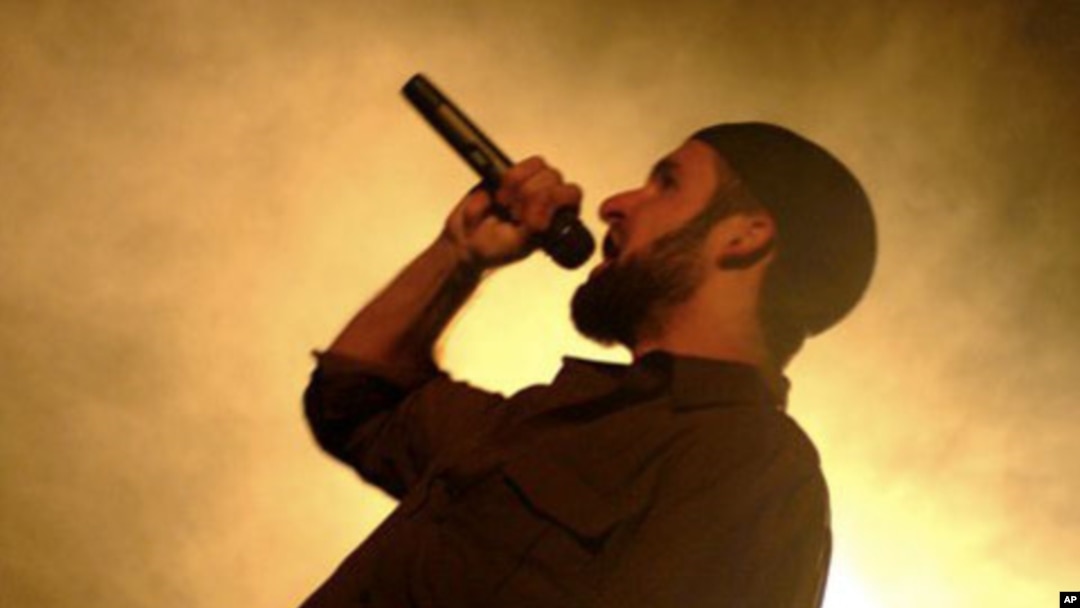Music and religion often go hand-in-hand. The traditions of many religions bring song and prayer together to engage followers of all ages and faiths. This type of crowd participation helps create the religious experience. Often, the American popular music scene is at odds with the beliefs of devout, religious followers. But, for one American rapper, the mixing of those two worlds serves as a tool to bridge faiths, cultures and stereotypes.
Where else but in the heart of New York City could one find a Muslim, American, Irish-Iranian rapper?
His name is Cyrus McGoldrick. He says he tries to channel all of the cultures that he’s been a product. When he steps on stage he does so by assuming the role of Raskol Khan.
"The Raskol Khan is a character that's very much me; but it's also everyone: as a young man in the city trying to do the right thing, but fighting with himself and fighting with the powers that be."
A student at nearby Columbia University, Raskol Khan is a devout Muslim who prays five times a day.
"I'm always careful to say that I don't do Muslim rap, but I am a Muslim rapper, because I'm very proud of my practice; I'm very proud to be a practicing Muslim in America. I think New York City is a unique melting pot of cultures. So in that way, we can have a lot of spaces for us - a lot of spaces for Muslims - to live and interact in."
And that is where the music comes in for Raskol Khan.
"I try to show in my music that we're all humans. We all want a lot of the same things. For a practicing Muslim - but I think for any person of faith - it's important to show that our decisions definitely refer back to an idea of right and wrong. Those core concepts, principles, if they come through in the music that resonates with people, that unites rather than divides. People can see someone who identifies as a Muslim; who is proud to be an American."
His abilitiy to unite brings a smile to his proud parents' faces. His mother, Nikoo McGoldrick call him the United Nations of music. His father, Jim, takes pride in the hard work his son puts into his music and enjoys the pleasure it brings to other people.
Many kids have hopes of superstardom. It's a common theme in American pop culture, but few would call the life of a celebrity "pious." It seems those two worlds would be at odds. But in Raskol Khan’s world it’s a chasm that can be overcome.
"Being a musician certainly involves being present in some venues and maybe around certain substances and people that a Muslim who wasn't on that scene would try to avoid. Being a musician and being a Muslim can go very well together. It really has to do with what your concept of being a musician is. If it's about the music, then that's one thing; if it's about the parties and everything else afterward, then that's a whole other story."
In Raskol Khan’s case, it’s most certainly about the music.
When not busy on stage or devoting himself to Middle-Eastern, Asian and African studies, this 20-something Rhode Island-native gives his time to the community, teaching reading, writing and basic literacy skills at a program called Community Impact.
“These skills will help people a lot in the future, inshallah. Anything that I can use my skills for to pass to them on, that's just a win/win. If I can make my living helping people and staying involved in the community, then that's perfect for me. My love for people; my love for family and friends; my love for what I study; the jobs that I go to… that gets me up out of bed every day by itself. I'm blessed to love everything that I do. I'm crazy busy and I'm always running, but I'm very lucky that everything that I do; that I'm running from one thing to another, I like all those things," says rapper Raskol Khan.


